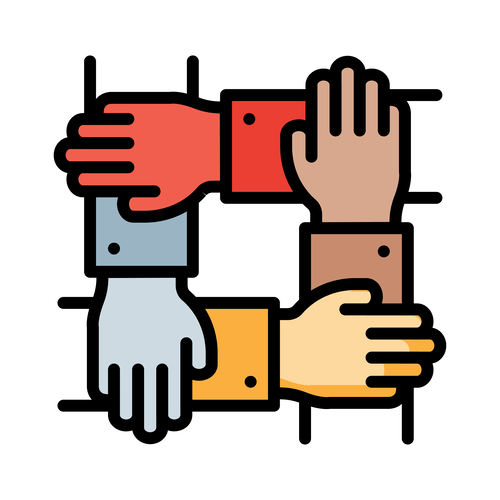You may start a model new project and blend up your group make-up or attempt new things that result in some conflicts in perspective but in addition permit your team to develop. While it’s important to just accept that remaining completely in the Performing stage – notably for long-serving groups – is unrealistic, it’s also value remembering that that is the perfect state. As such, it’s important you document learning points and techniques which have worked for you and your staff whereas Performing so you possibly can apply them once more in the future. In this stage, staff members are within the strategy of studying how to work together. As team members begin collaborating, conflicts may come up, whether that’s from clashing personalities or opinions on how a project should progress. Without a clear understanding of what position every particular person performs on the team, relationships can get tumultuous as staff members battle to discover a role that’s right for them.
This is as a end result of your group acknowledges how they will belief you and one another in order to complete tasks, move towards their aims and rely on one another for help. Identifying every of the 4 phases of team improvement helps you underscore your team’s wants throughout each one. To correctly and clearly establish these in group kind, we use the 4 phases of staff development.
One possible false impression is that to move a bunch via the Storming stage, you need to forestall variations in opinion from emerging. The perfect state of affairs here is not to keep away from discussions and conflicts from taking place completely, however to make sure they are productive, respectful, and end in practical takeaways. This means, your group can feel secure to surface any areas of concern while also being sure to keep away from making issues too personal or getting slowed down in blame or the potentially messier elements of the discussion. For some teams, the idea of getting to know you activities elicits a collective groan. Overly prescriptive or unimaginative workout routines can frustrate a staff, significantly if it’s not their first rodeo.
Remove obstacles by coordinating tightly with adjoining and upstream teams. Validate your assumptions about what your customers need, then proactively decide what you’re not doing proper https://www.globalcloudteam.com/ now so that you don’t get distracted. When you begin to sense that the left hand knows what the best hand is doing, you’ve made it into the “norming” stage.
You and your teammates trust one another sufficient to get somewhat creative and progressive, whereas still delivering top-notch work on time. There’s a new initiative to run at and you’re eager to get started. You’re unsure who’s doing what, or how to break this epic project into smaller components.
During the Norming stage, members shift their power to the team’s goals and present an increase in productiveness, in both individual and collective work. The team may discover that that is an applicable time for an analysis of team processes and productiveness. A simple however effective closing activity that would result in identify the training level or outcomes for individuals and measure the change of their behavior, mindset or opinion concerning the subject.
Key Actions To Support Forming
Sounds nice in principle, however placing it into follow can really feel daunting. With a structured approach, you can improve your team’s efficiency at every stage of improvement. Each stage of staff development would not essentially take just as much time as the one that comes after it, nor the one before it.

The fifth stage of group growth, also referred to as the mourning stage, is the ultimate stage a team will go through. After a project is over or if a team is disbanded, group members who labored together will go right into a small mourning interval. Group members may have a hard time working with different groups as they had sturdy group dynamics with their earlier group. Boost motivation by helping your workers perceive why their work issues.
Working To Build A Greater World
Resistance to assigned tasks and bristling at sure rules or methods may happen. At this stage, members usually begin to query the wisdom of the project at hand or even the purpose of the team itself. Behaviors during the Norming stage could embrace members making a aware effort to resolve issues and achieve group concord.
Members will generally be excited about their work and discover satisfaction in the results. They’ll additionally belief each other and interact with a high degree of openness. Best of all, teams at this stage will largely have the flexibility to manage themselves, resolve their very own conflicts and act collectively, as a complete. You might even have the ability to turn over a variety of the day-to-day leadership to a group member.
As teams work together, conflicts in thinking, method, or working practices can and can come up. While conflict could be unpleasant, this usually stems not from the fact we now have differences of opinion but that our methods of articulating or responding to battle can create friction or the feeling of being attacked. A workshop to support groups to reflect on and in the end enhance their alignment with purpose/goals and staff member autonomy. Use this workshop to strengthen a tradition of personal responsibility and construct your team’s capacity to adapt quickly and navigate change.
- Have you employed Tuckman’s stages of group development model when working with your own team?
- Clarity as to what success appears like at every milestone will give your team a much-needed confidence boost.
- At this stage, the group isn’t very productive, as they’re nonetheless getting acclimated and determining the position that every individual will play on the group.
- After delineating the roles of everyone within the team, it’s necessary to make clear expectations for the way they want to work autonomously and collectively.
- While there’s no one right way to help your staff, attempt these four methods to boost your group’s cohesiveness.
If the staff is successful in setting extra versatile and inclusive norms and expectations, members ought to expertise an increased sense of consolation in expressing their “actual” ideas and feelings. Team members feel an growing acceptance of others on the staff, recognizing that the number of opinions and experiences makes the staff stronger and its product richer. Members begin to feel a half of a group and might show pride from the elevated group cohesion.
Group Improvement: Four Stages Every Staff Experiences
The forming → storming → norming → performing mannequin of group improvement was first proposed by psychological researcher Bruce Tuckman in 1965. Team members could feel a wide range of considerations about the team’s impending dissolution. They may be feeling some nervousness due to uncertainty about their individual function or future duties. They could feel unhappiness or a way of loss concerning the changes coming to their team relationships. And at the same time, group members may really feel a sense of deep satisfaction at the accomplishments of the group. Individual members might really feel all of these items on the same time, or might cycle by way of feelings of loss adopted by feelings of satisfaction.

Frustration or battle can arise if the group doesn’t agree on or understand the explanation for the team’s existence and how success will be measured. Being sure the team is aligned on group targets early on means that you can develop as a gaggle swiftly and efficiently. All groups are composed of individuals with totally different wants, communication kinds, and working practices. When bringing these people together and fascinating in staff development, leaders might want to find methods to assist everybody work together successfully and grow as people and as a bunch. It’s upon reaching this stage that a group can become excessive performing.
Forming
In this meeting, you are taking notes from each staff member and apply these to your group ideas. This means, each employee is aware of they’ll belief you, and each other going forward. Alliance for Leadership Acceleration and the LEAP-Leadership Acceleration Program.

During the Forming stage, a lot of the team’s vitality is targeted on defining the group so task accomplishment could additionally be relatively low. During the Forming stage of group growth, team members are normally excited to be a part of the staff and keen about the work forward. Members usually have high constructive expectations for the staff experience. At the same time, they may additionally feel some nervousness, wondering how they’ll fit in to the staff and if their efficiency will measure up.
In the Performing stage, the team makes significant progress in the course of its objectives. Commitment to the staff’s mission is excessive and the competence of staff members can be excessive. Team members ought to proceed to deepen their information and abilities, including working to constantly enhancing staff four phases of team development improvement. Accomplishments in team process or progress are measured and celebrated. The end of a project is naturally a good time to reflect, collect last studying points and take into consideration what you may improve or do in a special way in the future.
Tuckman’s Stages Of Group Development
After delineating the roles of everyone in the team, it’s necessary to make clear expectations for a way they should work autonomously and together. This exercise is an efficient method of clarifying how your staff should work collectively whereas also setting clear expectations round private duty, reporting, and individual action. Used alongside exercises that help clarify group function and culture, this activity can ensure everyone on your staff is positioned for achievement. To successfully move ahead with team growth, a group first wants to grasp their function and general objectives.






